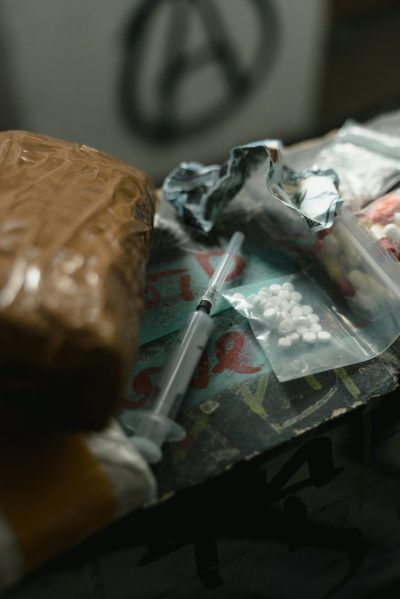Addiction

Understanding and Managing Addiction:
Addiction, clinically known as Substance Use Disorder (SUD), is a chronic, relapsing brain disease characterized by a compulsive drive to seek and use substances or engage in certain behaviors, despite harmful consequences. It’s a complex condition that affects the brain’s reward, motivation, memory, and related circuitry. Importantly, addiction is a medical illness, not a moral failing or a sign of weakness, and it is entirely treatable.
What is Addiction?
Addictive substances and behaviors powerfully activate the brain’s reward system, leading to intense pleasure. Over time, the brain adapts to this surge, which can lead to:
Tolerance: Needing larger amounts of the substance or engaging more intensely in the behavior to achieve the desired effect.
Withdrawal Symptoms: Unpleasant physical and psychological effects when the substance use or behavior is stopped.
Compulsive Use: A powerful urge to continue using despite negative impacts on health, relationships, work, and personal life.
These brain changes impair judgment, decision-making, and self-control, making it incredibly difficult to stop without professional help.
Common Symptoms of Addiction:
Recognizing the signs of addiction is the first step toward seeking help. While symptoms vary depending on the substance or behavior, common indicators of a Substance Use Disorder include:
Impaired Control:
Taking the substance in larger amounts or over a longer period than intended.
Persistent desire or unsuccessful efforts to cut down or control substance use.
Spending a great deal of time in activities necessary to obtain, use, or recover from the effects of the substance.
Craving, or a strong desire or urge to use the substance.
Social Impairment:
Recurrent substance use resulting in a failure to fulfill major role obligations at work, school, or home.
Continued substance use despite having persistent or recurrent social or interpersonal problems caused or exacerbated by the effects of the substance.
Important social, occupational, or recreational activities are given up or reduced because of substance use.
Risky Use:
Recurrent substance use in situations in which it is physically hazardous.
Continued substance use despite knowledge of having a persistent or recurrent physical or psychological problem that is likely to have been caused or exacerbated by the substance.
Pharmacological Criteria:
Tolerance (as described above).
Withdrawal (as described above).
Substances and Behaviors of Concern:
Addiction can develop with various substances, including:
Alcohol
Opioids (e.g., prescription painkillers, heroin, fentanyl)
Cannabis (Marijuana)
Stimulants (e.g., cocaine, methamphetamine, prescription stimulants)
Sedatives, Hypnotics, or Anxiolytics (e.g., benzodiazepines)
Nicotine/Tobacco
While not substance-related, certain behaviors like Gambling Disorder and Sex Addiction are also recognized as addictive disorders due to their similar impact on brain reward systems and compulsive patterns.
When to Seek Professional Help:
If substance use or a compulsive behavior is impacting your health, relationships, work, or legal standing, or if you find yourself unable to stop despite wanting to, it’s a clear sign to seek professional help. Early intervention can significantly improve the chances of successful, long-term recovery.
Dr. McWilliams' Approach to Treating Addiction:
Dr. McWilliams offers compassionate, discreet, and evidence-based care for individuals struggling with addiction. He understands the complexities involved and provides a personalized treatment approach focused on sustainable recovery. His process typically includes:
Comprehensive Diagnostic Evaluation: A thorough assessment to understand the specific nature of the addiction, co-occurring mental health conditions (which are very common with SUD), and individual circumstances.
Personalized Treatment Plans: Based on your unique needs, Dr. McWilliams develops a customized plan that may include:
Medication-Assisted Treatment (MAT): Utilizing medications (e.g., buprenorphine, naltrexone, acamprosate) when appropriate to manage cravings, reduce withdrawal symptoms, and support recovery, particularly for opioid and alcohol use disorders.
Psychotherapy: Engaging in evidence-based talk therapies (such as Cognitive Behavioral Therapy – CBT, or Motivational Interviewing) to address underlying issues, develop coping skills, and prevent relapse.
Holistic Support: Integrating lifestyle modifications, stress management techniques, and guidance on building healthy routines and support networks to foster overall well-being and long-term sobriety.
Focus on Long-Term Recovery: Dr. McWilliams is dedicated to developing long-term positive therapeutic relationships, providing ongoing support, and empowering you with the tools necessary for sustained recovery and a fulfilling life free from the grip of addiction.
Addiction Treatment in Maryland and Wisconsin
Breaking free from addiction is a challenging but achievable journey. You don’t have to face it alone. With professional guidance and personalized support, you can reclaim your health, relationships, and future.
Contact Dr. McWilliams today to schedule a confidential consultation. He is here to help you begin your path to recovery and renewed well-being.
Contact Information
7330 Grace Dr. Suite B
Columbia, MD 21044
